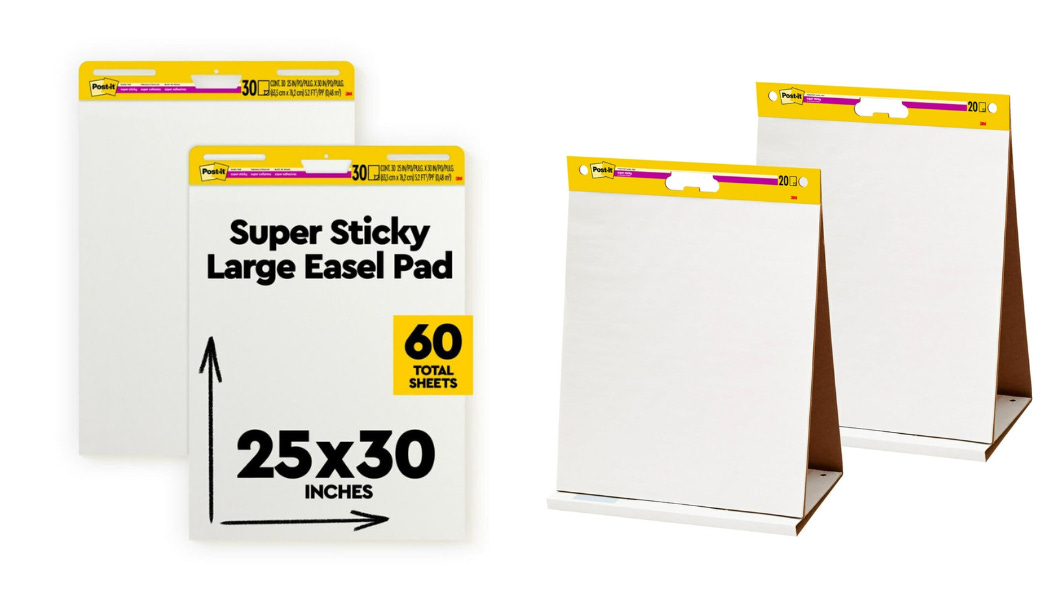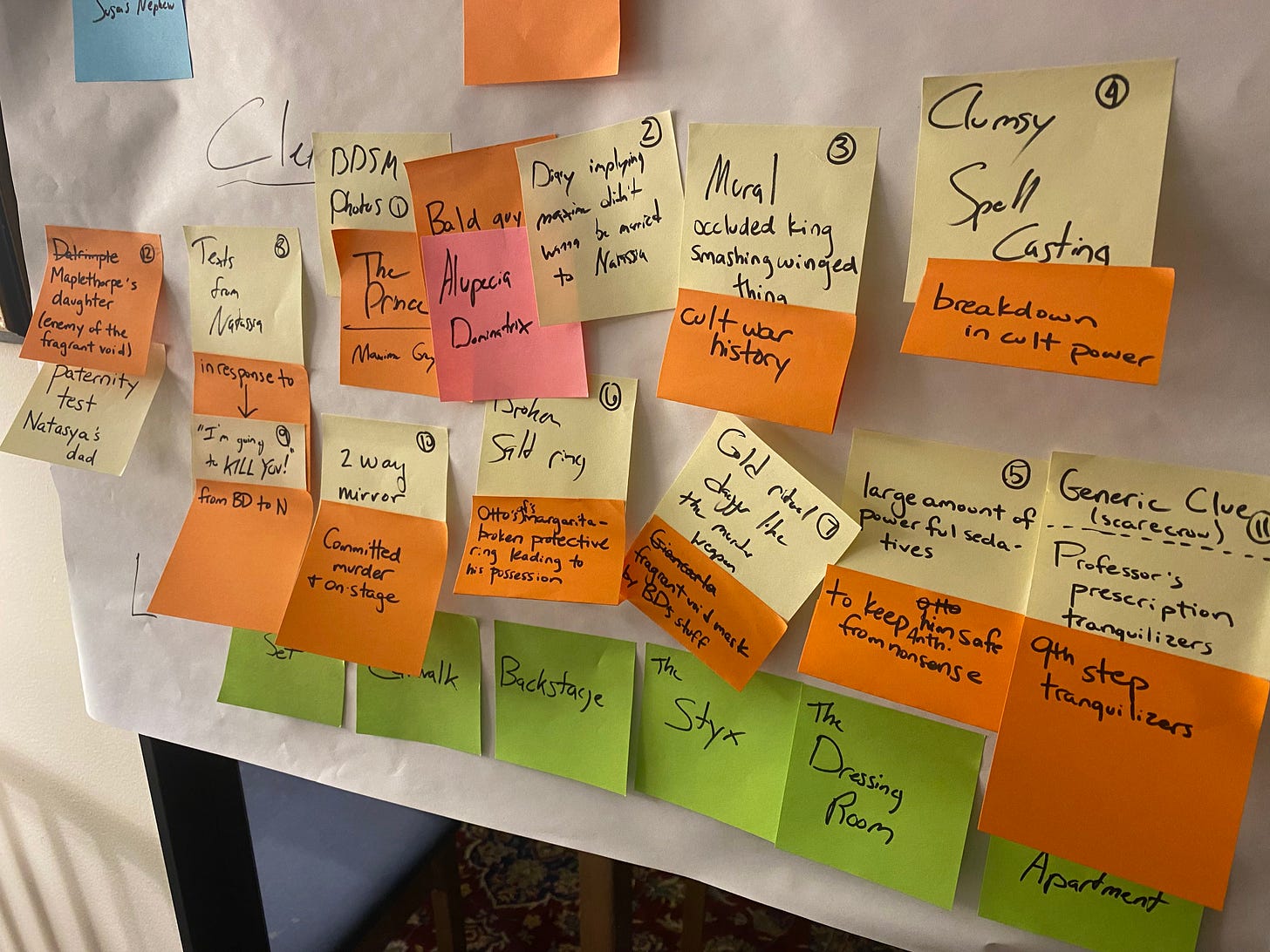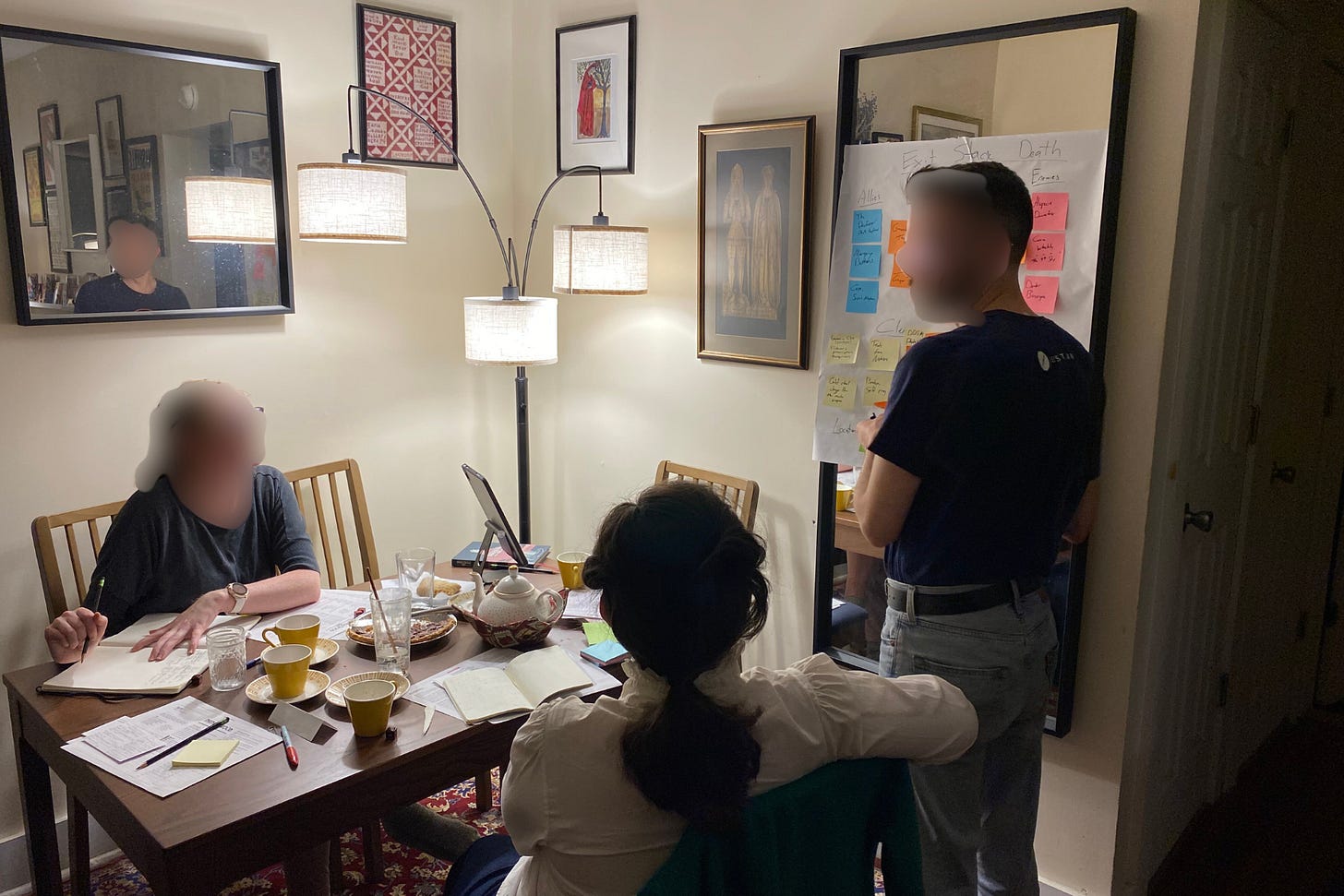SMOOSH JUICE
Putting it all up on the board — my new favorite table accessory

The last few sessions of my Brindlewood Bay campaign filled me with dread. We took a months-long break and were returning to play in the middle of a sprawling mystery with tons of locations, a broad cast of NPCs, a novel setting, and lots of clues to remember. How were my players supposed to keep track of all of this shit?
An idea struck me: I do a lot of group facilitation, and I have some of these “jumbo sticky notes” around. By jumbo, I mean giant sheets of paper, sometimes on a cardboard easel, that can tear off and stick to surfaces. They look like this, and you can get them at Staples, Amazon, wherever you get office supplies:
What if I just took everything from behind the screen, so to speak, and just threw all of the little pieces of game info on one of those? Folks generally think it helps “immersion” if you leave this stuff in notes, or ask players to remember it all. But that night, I couldn’t be bothered with illusionism. Asking my players to remember all that data was asking too much. So we tried it.
It was a phenomenal success. They loved it.
So I tried it for Scum & Villainy with the clocks. I tried it using Public Access. I tried it when playing Freebooters on the Frontier. It comes up as a highlight in all my debriefs. Anything where the players needed reliable access to a major goal, or a ticking clock, or a cast of NPC names, it went up on the board. Since I sit against the wall, that board is over my shoulder at all times, and players are looking in that direction.
That’s my message for today: Put a big board up in your space, on a big-ass sticky note with a marker, or a dry-erase board, and just throw shit on the board.
Another option here is a giant roll of “butcher paper” to cover the surface of your table. You can also get it at the hardware store as a giant roll of brown paper. Tear off a sheet, cover your table with it, and your players can write on it, take notes, doodle, whatever. Again, a $20-$40 roll will last you the rest of your life.
On that note…
I went on a self-improvement journey during the writing of The Roaring Age which a lot of folks liked reading about. Here was the quote that launched it, from Getting Things Done author David Allen:
Your mind is for having ideas, not holding them.
His point is that if there’s a persistent idea that you’re meant to remember, you should get it out of your head and put it somewhere you can reference. This leads to the practice of always “closing all open loops.” Open loops are anything you’re meant to do or remember that you’re just holding in your head to mentally remind yourself over and over again.
Thinking well can be like juggling, and the more things you have to remember, the more balls you have to keep in the air. Externalizing anything that you need to return to, like a goal or a future task will clarify your thinking so you can focus on what matters presently.
The more players have the remember, the less they can improvise, role play, and make fun decisions. In a particularly messy session, you’ll hear often a player say “Wait… so what are we even supposed to be doing again?” This is a surefire sign that they are trying to remember too many things.
Get out of your head, and onto the board.
I recently ran some sessions of Trophy: Gold for some of the Brooklyn OSR folks. One thing Trophy: Gold does is divide the imaginary landscape of an adventure into room-like “sets,” and instructs you to inform the players what the goal is as soon as they enter the space. They might enter a farmhouse and find out that their goal is to “learn the Scarecrow Ritual,” even if they have no idea at the outset what the hell that means.
When I read this, I hated it. I balked at the idea that players should just be told what the goals are. Sometimes discovering the purpose or destination of a space is its own mystery.
As it turns out, the mystery of what the players are even supposed to be doing is not a very fun mystery. Once you liberate players from the fumbling endeavor to articulate their own goals, they can set about confidently pursuing them.
So, for example, you might have a set called ‘The Hedge Maze,’ and the goal is “Reach the center of the maze.” That sounds straightforward, but as a directive, it does a ton of work, because it makes it clear when the set is over. You might accomplish all sorts of little adventure milestones in the hedge maze, like finding treasure, or fighting monsters, or learning a lore secret. But it’s only when they find the center of the maze that they can say “Ok, we’re officially done here.” Players are never going to ramble around a room, find a secret scroll, and wonder “So, is this what this room is for? To get us to this scroll? Or should we keep searching?”
We often hear things like the Five Room Dungeon for its design elegance and beginner-friendly simplicity. Or we hear about Clocks as a revolutionary way to abstract progress toward a goal in a satisfying way. But another secret success of these game tools is that they clearly say “This is how far you are from X goal, and then you will be done.”
GM superstar Brennan Lee Mulligan once said something like, “In D&D, the fighter has two special abilities. The first is to hit something with your sword. The second is to always know the best thing to do when your turn comes around.”
Help your players remember less.
-
On an ironic note, I’ve been playing Twilight 2000, and I’ve become sorta enamored and romantically fixated on this high-crunch survival simulator. I have lots to say about non-heroic tactical combat that I’m saving for another post.
-
Folks went nuts over my write-up of Worldwizard, it’s my most-liked post by a long-shot. I’ve written a ton of personal notes, but the initial blog post was written in a 40-minute fever pitch. Funny how these things go.
-
A written round-up blog of my recent diet of films, games, and books I’ve experienced feels, to me, like it would be self-indulgent slop. Then again, when others do it, I absolutely eat that up, so maybe I’ll try a few. People seemed to love that Worldwizard post. I’m a marketing professional who has no idea what people really like.
-
One of my next campaigns is of Public Access. Another campaign is Scum & Villainy. We’re just having a fucking blast with these games. More soon.



